In our relationships, most of us want:
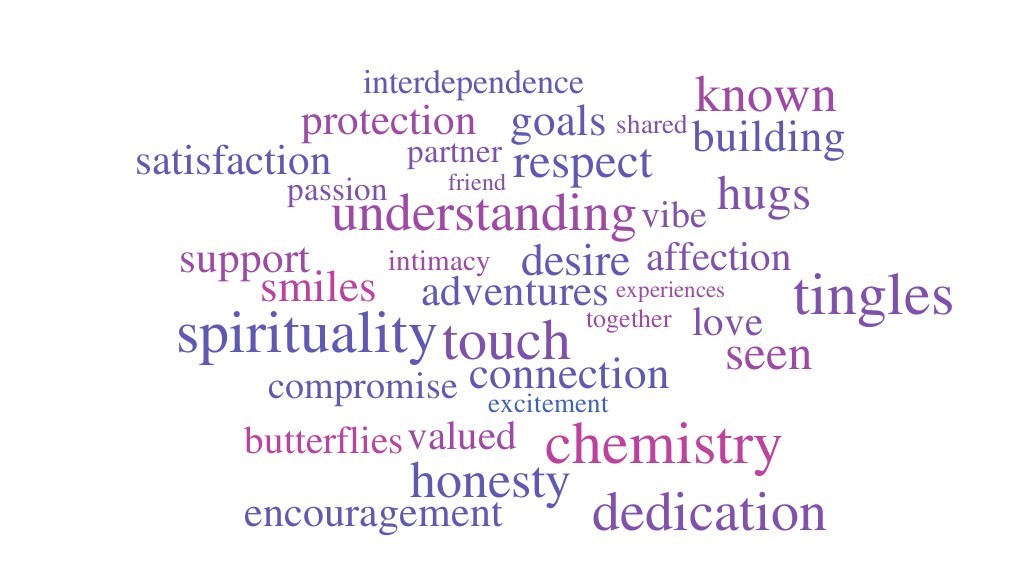

Biology/Design: for pretty much 99.9999% of human existence, we didn't live in a Disney movie of love like we try to now. Rather we lived in small groups and hunted and gathered and formed our deepest and most meaningful relationships with those in our tribe, not on the other side of the world. And we couldn't leave our greater family because that would probably have meant death, so we had to learn how to co-exist peacefully. But now, in this 0.0001% of our time as humans, we live in little boxes, separated from each other, we communicate our hopes and desires in electronic messages that don't carry tone and body language or really anything that used to be a part of genuine, authentic connection. So, frankly, we're very out of practice.
Trauma: this starts in the womb when we learned about the outside world through our mother's biochemistry, and continues as we grow up in sometimes broken households led by emotional children themselves who are simply doing their best to cope without adequate tools. And the more trauma we had early-on, the more our brain and body development was adversely affected, and the less likely we are to be able to form healthy attachment to others.
Epigenome: science tells us that our family history and trauma is also passed down through generations by way of our genes. So, even if you had a perfect childhood environment, part of your potentially unhealthy coping mechanisms and behaviors, came into your DNA from the past, and got lodged in your subconscious - which pretty much runs the show when we're you're not paying attention, or get overwhelmed.
Cultural Programming: from the very first moment you could first see, or hear, or smell, or feel, or touch, you've been receiving messages from your culture about how to act and what to believe. The tens of thousands of billboards you've driven by, or commercials you've listened to, or the church/synagogue/mosque lectures you've been inundated by; all of these cultural stories have become you and your 'operating system', so much that you probably don't even really know who you are without them.
But, if you can take the time now, and reconcile all of the information that you've assembled over the years, evolve beyond your trauma and programming and story-telling, then, and only then, will you feel completely whole, and be able to connect with others in an truly authentic way.
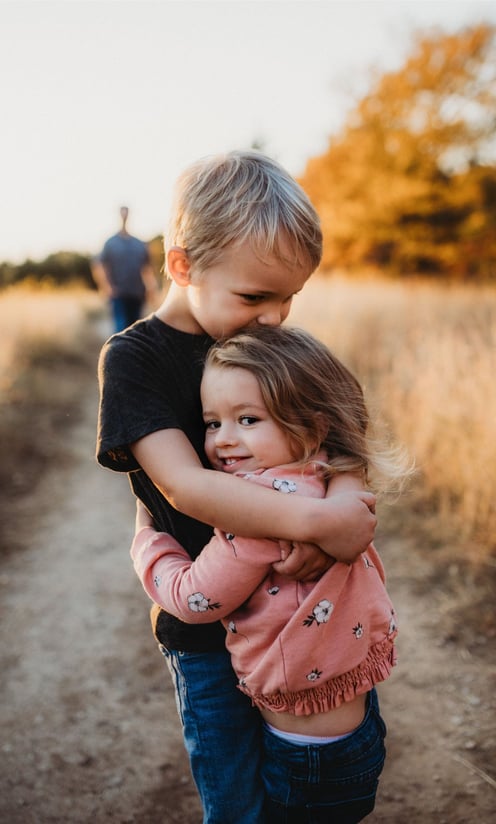

Aren't we designed for connection?
Then why does it have to be so hard?
Optimal Relationship Coaching Clients
No matter how you slice it, we are all in relationships. Some of our relationships are with coworkers, some with family members, some with people in our larger community, and if you're lucky enough to find someone who is willing to walk right along-side you, some of these relationships are with romantic partners. I work with anyone who is trying to deeply connect with themselves (our first and most important 'relationship) and others. And after more than 4,000 hours of traditional counseling, in particular, with highly conflicted couples, I have learned a lot about how to help people get honest, and then heal together.
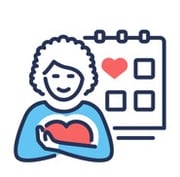

Dating: I'm actually pretty freakin' exhausted by young, cute Instagram dating coaches who seem to have all of the answers, but haven't been around for long enough to have any significant life experience. See, forming healthy, lasting purpose-built relationships isn't about getting professional photos taken or writing the killer profile, or about knowing how many hours to wait to respond after a date. What it is - is knowing who you are at your core, and being absolutely, crystal clear about what it is that you want to co-create with another beautiful human. When you are that clear, that honest with yourself about who you are and what you want, you can/will go out and find it. This is exactly what we'll do together.
Healthy Relationships: All relationships need tending, even the amazing ones. There is just a lot of stuff that comes up in life, that challenges us and our capabilities. And there will be times when the same approach that used to work before, just doesn't any longer. Whether it's a change in family dynamic (e.g. kids leaving for Uni), or work (e.g. job change retirement), or an unexpected emotional crisis (e.g. loss of loved one or scary diagnosis), every amazing relationship will need to grow in order to embrace all that life delivers. So when you're lost and don't have the skill-set to course correct, that's when it's time to seek out someone like me, who will hold space for your challenges, and introduce to you new tools and perspectives that will enable you grow even more closely together.
Struggling Relationships: And there there are the just plain, utterly difficult moments in every relationship, where there is breakdown of epic proportions and it's impossible to see a way forward. Maybe there's been infidelity, or a mid-life crisis - both of which can call into question the entirely of the commitment. Or maybe there's simple and subtle resentment that's never been addressed and has now become the elephant in the room that prevents any real vulnerability, connection, or intimacy. This is when you need someone who can hold space for your pain, who can succinctly describe the pattern/problem, and who will help you work your way forward in a kind, compassionate, and collaborative way.




Don't Delay, Your Lifelong Happiness Literally Depends On It
Simply put, if you do more personal growth work earlier in life, the result is that you will have much less work to do later on. For many more years, you will have less internal conflict, less overall anxiety, less reactivity, and better relationships across the board. Not to mention if you ever have kids, your good work now will allow them to have any easier path.
The above is a simple graphical example of the personal growth process, represented by two asymtopes of different curvatures. An asymtope is a curve that approaches the X-axis, but will never, ever touch. As in personal growth, there will always be more work to do right up until the day we die. This "work" remaining to be done is reflected by the red area under the curve; in other words, what we still need to do/learn/integrate in order to be healed and to be free of our trauma and our unhelpful stories.
The one thing we have complete control over in the/our process, is the slope of our curve (how much work we put in to heal and grow). What are you waiting for?
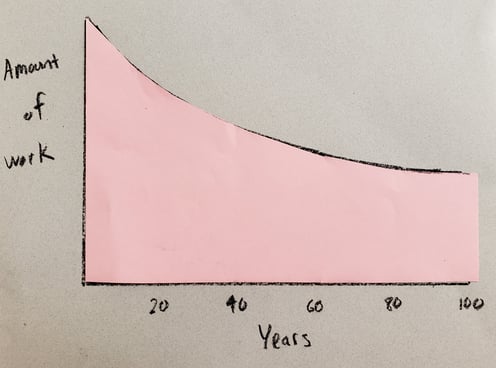

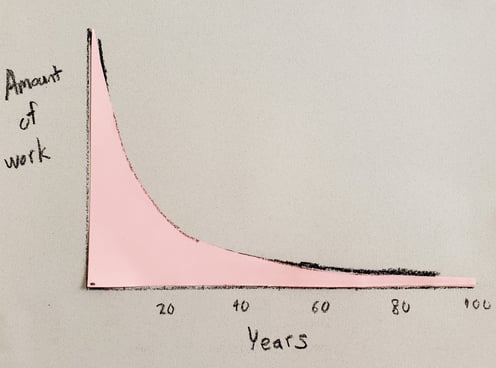

The Relationship Coaching Process
I stand on the shoulders of all of the amazing thought leaders that came before me - who were willing to dive deep into subjects and share their findings with the world.
What I do well is two very important things: 1) I identify behavior and thought pattern(s) very quickly, and can understand 'why' someone might be thinking or behaving in a certain way, and 2) I can distill a lot of sometimes complicated research on healing topics, into simple, and actionable information. The process of our work is, more or less, as follows:
Chapter 1. Identifying How Did You Get Here (Getting To The Root)
The first chapter of work together will include an in-depth clinical style intake, where I will learn about your history, including any early childhood trauma and/or family stories passed down through the epigenome. The will help us to better identify the subconscious belief patterns that will ultimately need to modified or eliminated. Useful background information on this chapter can be found here:
CDC-Kaiser ACES Study
"It Didn't Start With You" by Wolynn
Chapter 2. Who Do You Want To Be And Where Do You Want To Go (Setting The Course)
The subconscious mind is 1,000,000 times more powerful than the conscious mind. And we humans are a walking collection of subconscious belief pattern that we were taught by our family and culture. Most of us don't even know who we are and what we believe, without these pre-programmed systems. This chapter will be focused on identifying core values, essentially who we are and who we want to be without/beyond our programming. Much like the Japanese tidying expert Marie Kando helps people create physical spaces that are only filled with things they love, we will do the same, but for your core values and beliefs. Useful background information on this chapter can be found here:
7 Habits of Highly Effective People, by Covey (in particular chapter 2)
Chapter 3. Building And Refining Your Toolset To Get There (Upscaling Your Technology)
To take a vision and even think about putting it into action, often requires the upscaling of, or acquisition of, entirely new skills. in this chapter we will seek to further understand how your biology influences nearly everything, and then to be able to interact with it and even have it work in your favor. In addition, we will improve our communication skills so that we can take all of the beauty you have inside you and share it with others that leads to deeper connection. Useful background information on this chapter can be found here:
You Are The Placebo, by Dispenza
Non-Violent Communication, by Rosenberg
Chapter 4. How You Do Anything Is How You Do Everything (Practice)
One of the most frustrating things in the world is knowing what to do, but not taking action. It's way more frustrating than not knowing. So, in many ways, this chapter is the most important. The rest of the information gets you to the proverbial starting line, but without an ability to put your new information into practice, you're dead in the water. During this final chapter we will better understand how to create healthy habits that stick, how to integrate new information into your thoughts and behavior, in a way that lasts, permanently. Useful background information on this chapter can be found here:
Atomic Habits, by Clear
Why Me
Over 5 years and 4, 000 hours working with couples in a traditional therapeutic setting, but I'm not a traditional 'therapist', so I can always go off-script and take us wherever we need to go to heal.
Over 400 hours facilitating men's groups with a focus on cultivating deep empathy and compassion.
10+ years teaching Marshall Rosenberg's Non-Violent Communication methodology - the healthiest communication model I know.
I cultivate and leverage compassionate listening moments.
I co-create win-win opportunities for and between my clients.
Said by a favorite client, "Lee's superpower is being able to say the hard to hear and honest thing, and while I don't like hearing it, at all, I know he does it for my benefit, and I respect him deeply for having the balls to do it."
Modern psychology is a very, very young field (less than 150 years old). So most "professionals in the therapeutic world are really just winging it at best. Trust me, I've seen so-called professionals work with clients for years without making any progress. Just because someone has a Masters Degree or PhD in this field often has no bearing on their ability to help you.
So what does matter, what should you look for in a person that will guide and help you? Well if you want to know what are the top 10 things to look for in a counselor/coach/therapist, here they are: rapport, rapport, rapport, rapport, rapport, rapport, rapport, rapport, rapport, rapport.
Simply put, if you like and trust your 'person', you can evolve with them and their help. It's really that simple.
I've been doing this working-with-humans stuff a long time, and with a very diverse audience, from Mormon families in polygamic marriages, to conservative Christians, to eager beavers, to Burning man enthusiasts with a penchant for sexual games, to Billionaires struggling to find peace too (yup, money doesn't necessarily equal happiness or peace). With me, no topic is off limits, and what we'll learn together, more than anything else, is how to be vulnerable with one another, and to trust each other.
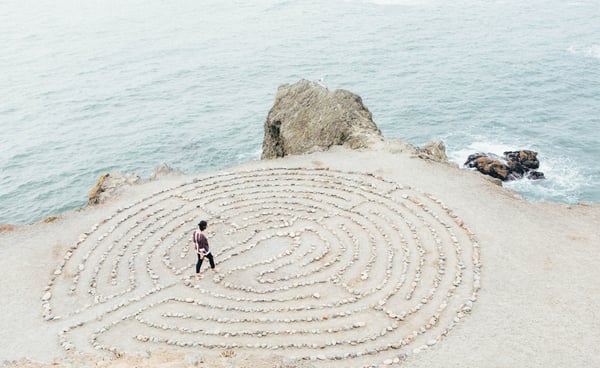

30-minute exploratory call
(no cost)
single 75-minute call ($200US)

